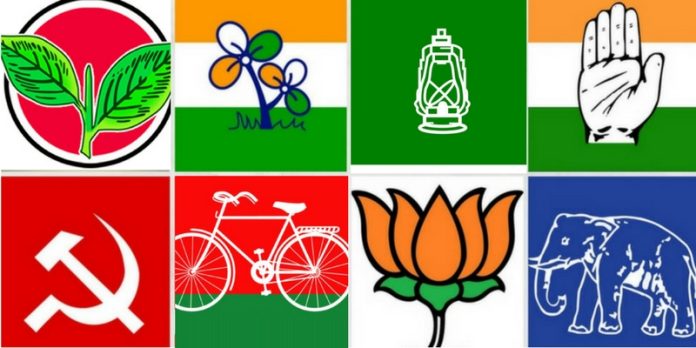The political scenario has metamorphosed into something unimaginable from the time India first obtained independence from the British. We know how the Grand Old Party held overwhelming sway over the Indian population since the clamour for Independence started in the 19th Once independence was achieved, the Congress continued to derive huge electoral benefits by virtue of its ubiquitous presence. No wonder, India as a nation witnessed successive Prime Ministers from the stable of Congress for a few decades before the opposition parties started making inroads into national politics. Recollect how only two national parties held sway over the country’s political fortunes in those early decades. The ground realities have changed since then.

PC – Bharatiya
However, the situation changed dramatically – but on expected lines – when the regional parties started gaining acceptance along the length and breadth of the country. The Mandal Commission report followed by the BJP’s Rath Yatra contributed to permanently altering the political landscape allowing the regional parties to gain even more prominence. Of course, the secular and communal narrative too started gaining traction even as the polarization assumed greater prominence. We have had several coalition governments at the Centre propped by the regional parties. But these experiments have failed to establish an alternative political narrative dislodging the two main national parties viz. the Congress and the BJP.
Of course, the alliances being forged among the like-minded parties around the two national parties are not uncommon now. Thus, we have the UPA and the NDA representing the blocks headed by the two national parties. With the ensuing general elections a few months away, smaller parties will flock to these two blocks to stay relevant. What’s unraveling in Karnataka further highlights the same phenomenon. Former PM and JD(S) chief Deve Gowda recently said his party is in talks with BJP to work out a seat-sharing deal in Karnataka for Lok Sabha elections. He added it was meant to save JD(S) and appealed to voters to keep the regional party afloat. Gowda’s appeal should be read in the context of a key political development.

PC -Bipin Bhardwaj
Since 2014, the clout of regional satraps in GOI has all but disappeared. While many remain formidable in states, national politics has changed. The BJP’s successive majorities in the 2014 and 2019 general elections have altered the equations. It’s a question of survival for the JD(S), and the situation worsened with a poor performance in Karnataka’s assembly election. Similarly, BSP and Shiromani Akali dal face an uncertain future with their performance diminishing in all elections. Except for a few regional political parties, the voice of several others has diminished in their political affairs with the Centre, which has led to a debate over federalism. Undoubtedly, the survival and thriving of regional parties are imperative to ensure the health of federalism.






